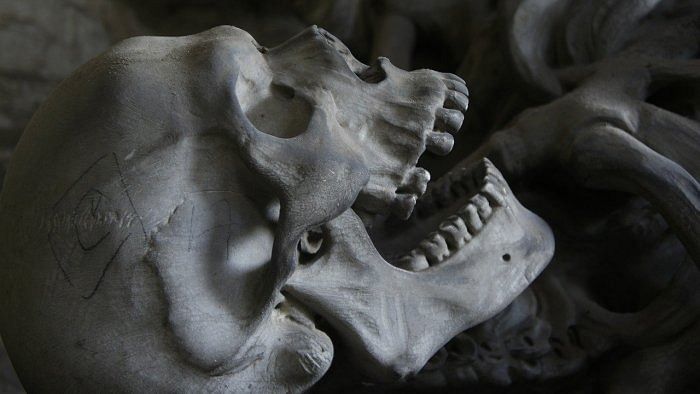
Researchers have established that the human skeletons excavated from an old well in Ajnala town of Punjab are of the Indian soldiers from the Gangetic plain region, who were killed by the British during the 1857 uprising.
The large number of human remains unearthed in early 2014 led to several speculations as some historians believed these skeletons are of people killed in the riots during the partition of India and Pakistan.
A collaborative study taken up by the researchers from the Centre for Cellular and Molecular Biology, Hyderabad, Panjab University, Birbal Sahni Institute, Lucknow and Banaras Hindu University has revealed their identity and geographic origins of these soldiers using DNA and isotope analysis.
Dr JS Sehrawat, an anthropologist from Punjab University and first author of this study said that their research results “are consistent with the historical evidence that the 26th Native Bengal Infantry Battalion consisted of people from the eastern part of Bengal, Odisha, Bihar and Uttar Pradesh.”
As per historical records, soldiers from this battalion were posted at Mian-Meer, Pakistan and killed British officers in a revolt. They were captured by the British army near Ajnala and executed.
“DNA analysis helps understanding ancestry of people, and isotope analysis sheds light on food habits. Both the research methods supported that the human skeletons found in the well were not of people living in Punjab or Pakistan. Rather, DNA sequences matched with the people from UP, Bihar, and West Bengal”, said Dr K Thangaraj, Chief Scientist, CCMB and Director, Centre for DNA Fingerprinting and Diagnostics, Hyderabad.
Prof Gyaneshwer Chaubey, Department of Zoology, BHU, stressed that the study findings would add “a significant chapter in the history of the unsung heroes of India's first freedom struggle.”
The results of the study, which used 50 samples for DNA analysis and 85 specimens for isotope analysis, were published in the journal Frontiers in Genetics.
Watch latest videos by DH here: